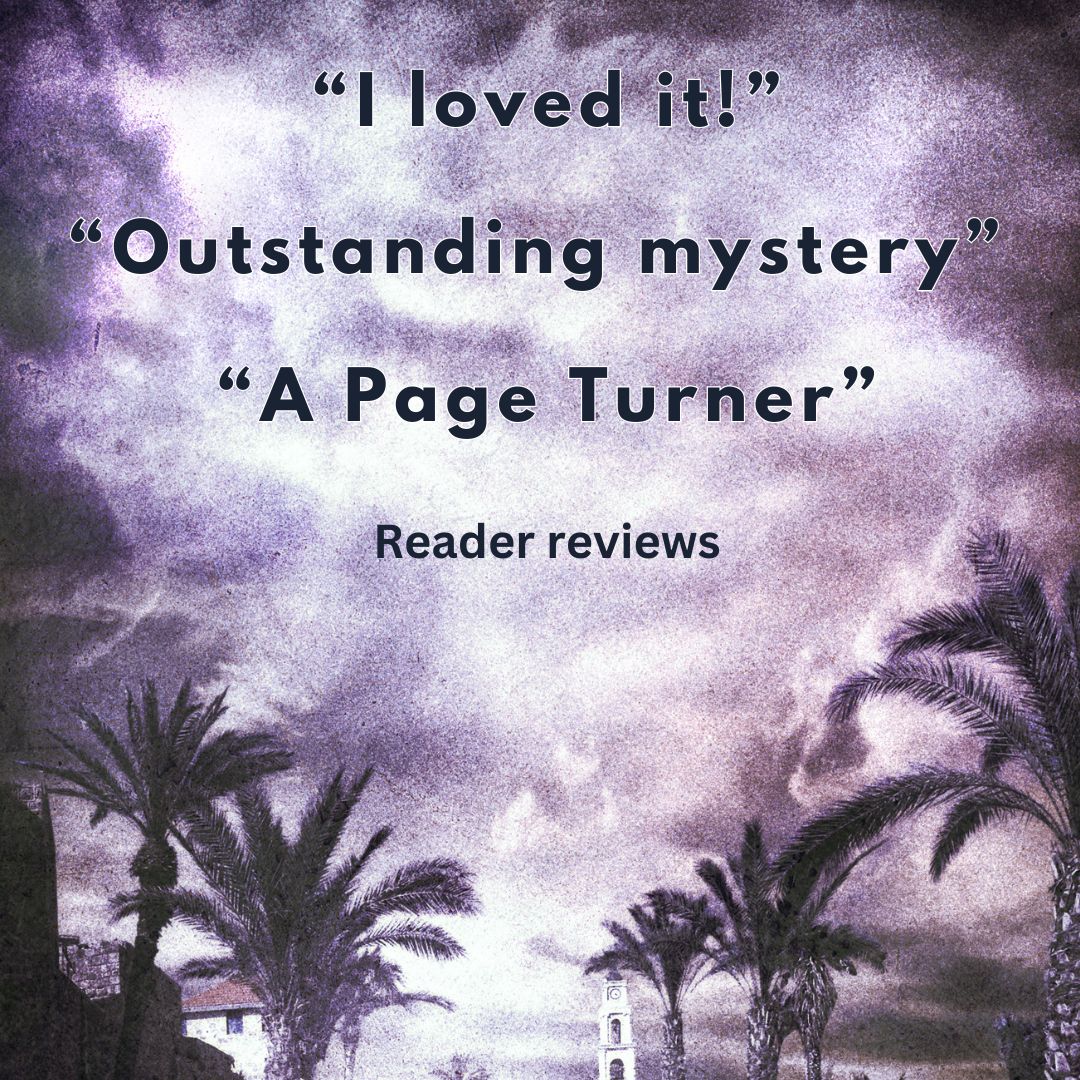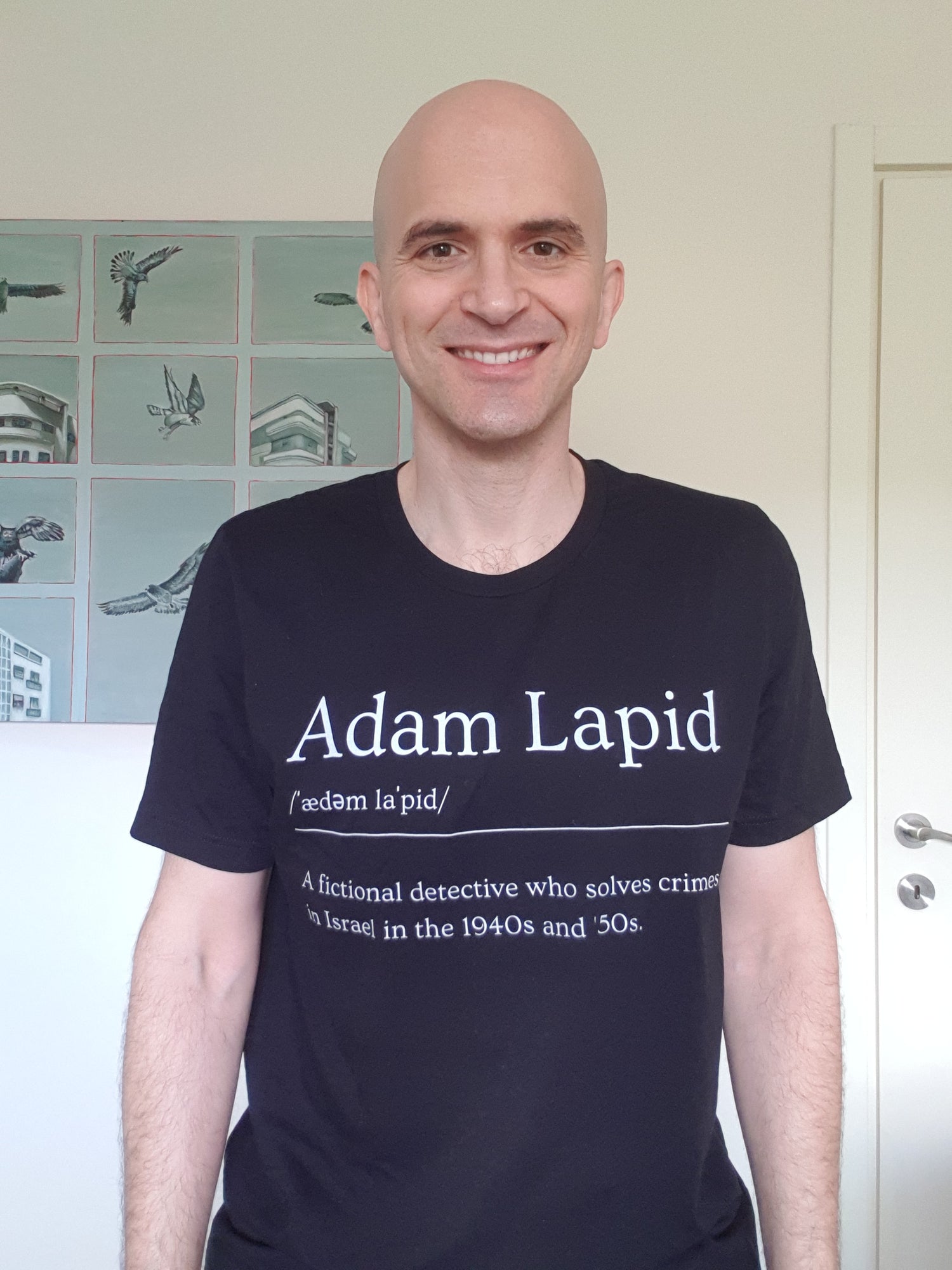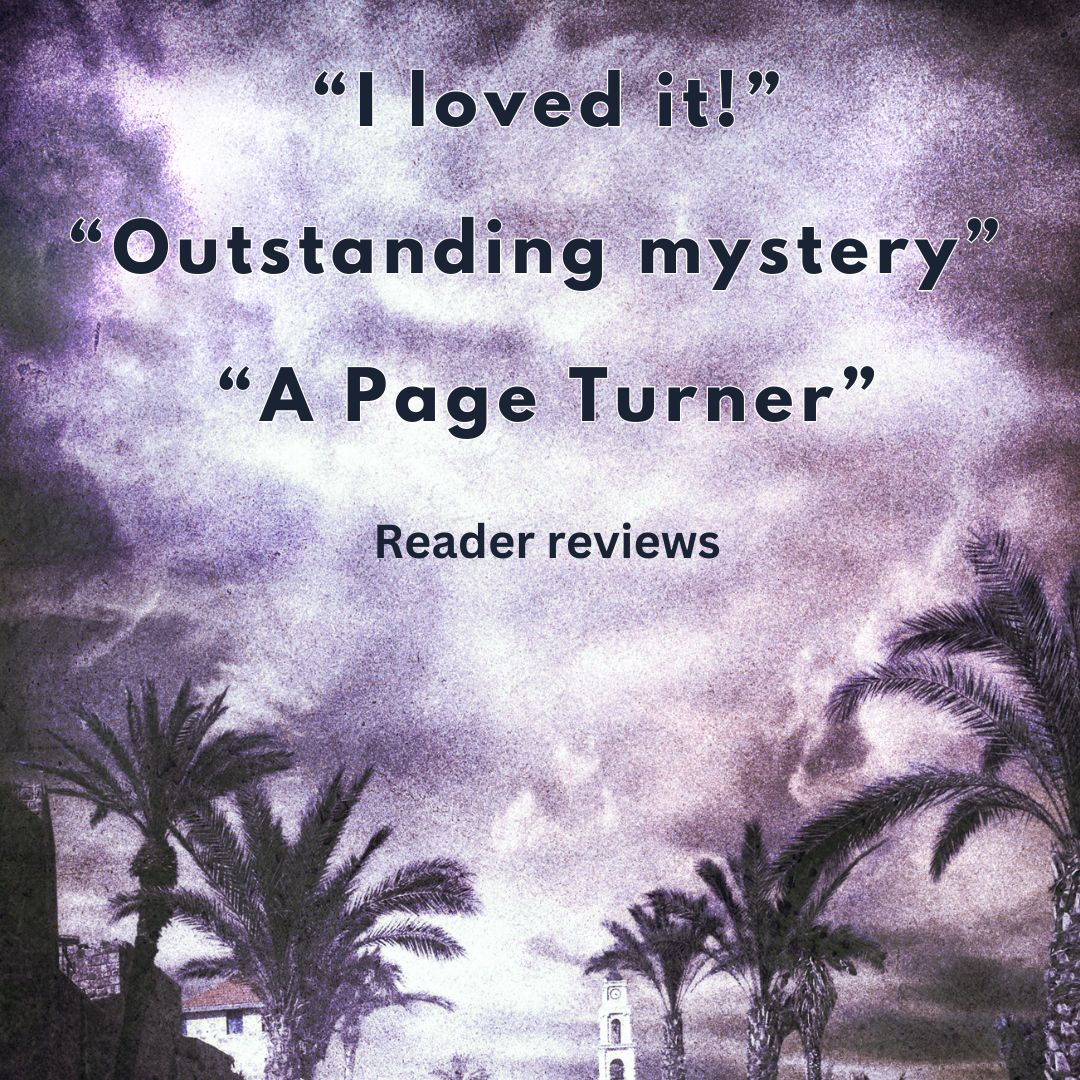Jonathan Dunsky
A Deadly Act (Adam Lapid Mysteries #5) - Hardcover
A Deadly Act (Adam Lapid Mysteries #5) - Hardcover
Couldn't load pickup availability
Book Description:
What if you suspected your husband of murder?
Israel, 1951: Private investigator Adam Lapid has never had a case like this.
Five years before, his client lied to the police, giving a false alibi for her husband. Now, she's sure he committed murder, and she wants Adam to prove it.
But can Adam really trust her? Is she telling him the whole truth?
The case is a puzzle, the victim a mystery wrapped in a riddle. And the murder scene? That's the most baffling thing of all.
Why did the killer choose that particular spot? Why take some of the victim's possessions and leave others behind?
It's a cold case that’s about to get hot. The more Adam unravels the mystery, the greater the danger. Is the killer plotting to kill again? Is Adam’s life in danger as he closes in on the murderer?
Hardcover. A Deadly Act is book 5 in the Adam Lapid series.
| Hardcover | 376 pages |
| Dimensions | 6x9 inches (15.24 x 22.86 cm) |
| ISBN |
978-965-7795-11-8 |
| Publication date |
June 8, 2021 |
| Publisher | Lion Cub Publishing |
Chapter 1 Look Inside
Chapter 1 Look Inside
Chapter 1:
The old man howled as he carried his dead daughter in his arms.
He bellowed his grief, staggering forward, one plodding step after another, burdened by her weight and her death.
His daughter was young and slim and beautiful. She had on a long midnight-blue dress that accentuated the paleness of her skin. One of the old man's arms clasped her beneath her knees; the other cradled the back of her neck. Her head lolled a little backward, her tawny hair hanging straight down in a single intricate braid.
She had been an impressive woman not too long ago. Honest, valiant, noble. But now she was no more.
The old man had been impressive as well. Other men had looked up to him, respected him, did his bidding. He had emanated generosity and wisdom and kindness. Now he was but a shadow of his former self. His fall had been long and swift and hard. I could relate, for though I had never been as high as he, I too had suffered a fall into near nothingness. And I, too, had lost daughters.
His appearance matched his current circumstances. He wore a dirty white shirt and even dirtier loose black pants. His beard was scraggly, his fringe of white hair long and matted. His suffering had chiseled deep new lines on his aged face. His expression was twisted in torment. He shook his head as he stared down at his lifeless daughter, as though struggling to deny what could not be denied.
To my left, a young curly-haired woman gasped. Her eyes were riveted to the old man and his anguish, and even in the relative darkness that enshrouded us, I could see the glitter of tears on her cheek. To my right, a portly middle-aged man was puffing on a cigarette, his gaze equally welded to the old man and his daughter, the air between us filled with acrid smoke.
Emitting a low groan, the old man sank to his knees and gently laid down his burden of love and loss. With a trembling hand, he caressed his daughter's cheek. He shook his head once more, swelled his torso with air, and let out his deepest howl yet. It echoed around me like a hundred tolling bells proclaiming a funeral.
The sound he emitted was familiar to me. Or at least I knew what it was supposed to be. The cry of a man who had lost everything—all that he had, all that he loved, all that he had taken for granted, all that had defined him.
It was a worthy approximation, but no more than that. I could appreciate the similarity and the talent that had produced it, but I had heard the real thing too many times to be fooled. The harrowing wail of a man who had truly been stripped of everything had a distinct, soul-rattling edge to it. I doubted it could be reproduced by anyone, no matter how gifted.
The old man, seized by a glimmer of hope, begged for a hand mirror with which to test if his daughter still breathed. She did not. His hope was now dead as well.
A younger guy, one of a handful who stood in the vicinity of the old man, had given the mirror to him. Now he knelt at his side and attempted to console him. The old man did not recognize him; his mind had room only for his daughter. He cursed those around him. "A plague upon you, murderers, traitors all! I might have saved her; now she's gone forever! Cordelia, Cordelia! Stay a little."
But Cordelia was already gone, as were the old man's two other daughters—neither of whom had been as noble as Cordelia. And now all that remained of this man who had once been a king was his raw pain, his crushed spirit.
A hand suddenly gripped my left forearm, just about where a number was tattooed to my skin. It was the curly-haired woman in the seat beside mine. Her fingers grasped my flesh with a hard, steady power. I did not know her, had never seen her before that night. Looking at her now, I could see only her profile. She was leaning a bit forward in her seat, her body as rigid as a rifle barrel. Her lips were parted in anticipation. Her eyes stared intently, barely blinking, at the unfolding scene before us, and I realized she was not aware of where her fingers were placed, that her hold on my arm was merely an instinctive extension of her emotional state.
And she was not the only one held captive by the drama we were watching. A deep hush had settled upon the audience that surrounded me. Absent were the whispered murmurings and the awkward clearings of the throat that had sounded during the previous acts. Now it felt as though all of the spectators were holding a collective breath, waiting for the end that was drawing near.
A minute later, it was upon us. The play was over. The old man was dead, completing his crashing fall. His story was done. His body lay motionless next to his daughter's, his face turned away from us, as though to spare us a final stab of pain. Slowly, a red curtain descended upon the stage. It swallowed the dead and the living that remained to mourn them in an undulating wave of cloth that made me think of a spreading pool of blood. The woman to my left had relinquished her grip on my arm and was now wiping her cheeks with her hands.
A few spectators began clapping. Others quickly followed suit. Soon a steady rhythm was established.
The curtain did not remain lowered for more than a minute. Then it was rising again, revealing an empty stage. Onto it, one by one, walked the cast. Each of them lavished the audience with a smile and a theatrical bow before stepping aside to make room for the next cast member. First were those who had played minor roles in the play, and then came those who had acted the major characters—Kent, Regan, Gloucester, Edgar.
When the actress who'd played Cordelia stepped on the stage, the clapping intensified. The actress, her face flushed with pleasure, smiled a dazzling smile and pressed her hands to her bosom as if overwhelmed by the applause. In her joy, she looked even more beautiful than during the play.
Cordelia—which was the only name I had for her—stepped aside, still beaming. The center of the stage, brightly illuminated by overhead lights, stood empty for a moment. Then came the star of the show.
He was still dressed in his dirty clothes, still wearing the makeup and beard of the fallen old monarch, but he no longer acted the part. Gone were the stooped posture, the shuffling step, the tormented expression. The man who now swaggered into the light did so with an easy stride, a straight back, and a face that seemed on the verge of splitting open due to the width of his grin. He stood with his hands at his sides, surveying the audience, basking in its adoration, glowing as men do at moments of personal achievement. It was a strange sight—the ancient, frail man with the grin, stance, and evident vigor of a much younger fellow.
The applause grew louder still. Someone shouted, "Bravo!" People began to rise from their seats. The woman to my left and the man to my right also stood clapping, and I did the same, though not for the same reason. I did so partly so that I would not stand out, and mainly so the people in front of me would not obscure my view.
For I was not there to see a play. I was there to see just one man. The actor who had played the English king who had sought to divide his kingdom between his three daughters and had ended up losing all three and his kingdom as well. The man who now stood at center stage, beaming in triumph.
Isser Rotner was his name.
He had a right to be satisfied with himself. It was a good performance. He had acted well. He had been a convincing king and a persuasive dispossessed old man. His talent and skill were undeniable.
As I stood there with the thunder of applause in my ears, I scrutinized him, attempting to see past the beard, past the makeup, past the smug grin and the blazing dark eyes, and straight into the depths of Isser Rotner's very soul.
I was trying to determine whether this man, this actor, had a few years ago played a different role, one for which he had never taken nor was given any credit.
I was trying to see whether Isser Rotner was a murderer.
--- End of Chapter 1 ---
How Do I Get My Book?
How Do I Get My Book?
Print books are delivered by mail to the address you specified during checkout.
Usually, it takes 6-12 business days to print and ship your book, but our printing service often does it faster.
There may be delays due to holidays or other events beyond our control.
Editorial Reviews
Editorial Reviews
"If you only read one P.I. series, make it the addictive, evocative Adam Lapid Mysteries." - Ellen Byron, bestselling mystery author of the Cajon Country Mysteries
"...a fascinating and thrilling story" - Jewish Book Council
"Jonathan Dunsky knows how to create an intriguing mystery that keeps the pages turning." - Murray Leighton-Bailey, author of the Ash Carter thrillers.
"I 'binge-read' the entire series." - Cardinal Bluff Reviews
EU Compliance
EU Compliance
Information for customers in the European Union:
Manufacturer details:
Copytech (UK) Ltd, Trading as Printondemand-worldwide.com
9 Culley Court
Orton Southgate
Peterborough
Cambridgeshire, PE2 6WA
United Kingdom
01733 237867
EU GPSR Authorised Representative:
Easy Access System Europe Oü, 16879218
Mustamäe tee 50, 10621, Tallinn, Estonia
gpsr.requests@easproject.com
+358 40 500 3575



Hi, I'm Jonathan Dunsky
I love history and solving puzzles, so I decided to combine my two passions by writing historical mysteries.
My main body of work is the Adam Lapid series. The Adam Lapid novels are historical mysteries that take place in Israel in the 1940s and '50s.
The one exception is The Auschwitz Detective, a book that takes place in Auschwitz in 1944.
I hope you'll join Adam Lapid as he hunts for crafty killers on the dusty streets of Israel and war-torn Europe.
You can get books 1-8 in the series for 20% off here: 8 Books Bundle.
This is my favorite book of yours so far. It was unpredictable with surprise villians! I felt terrible for those left behind. Thanks for your great work!!!!
Excellent - looking forward to the next three books
My three books ordered have been received -thanks

